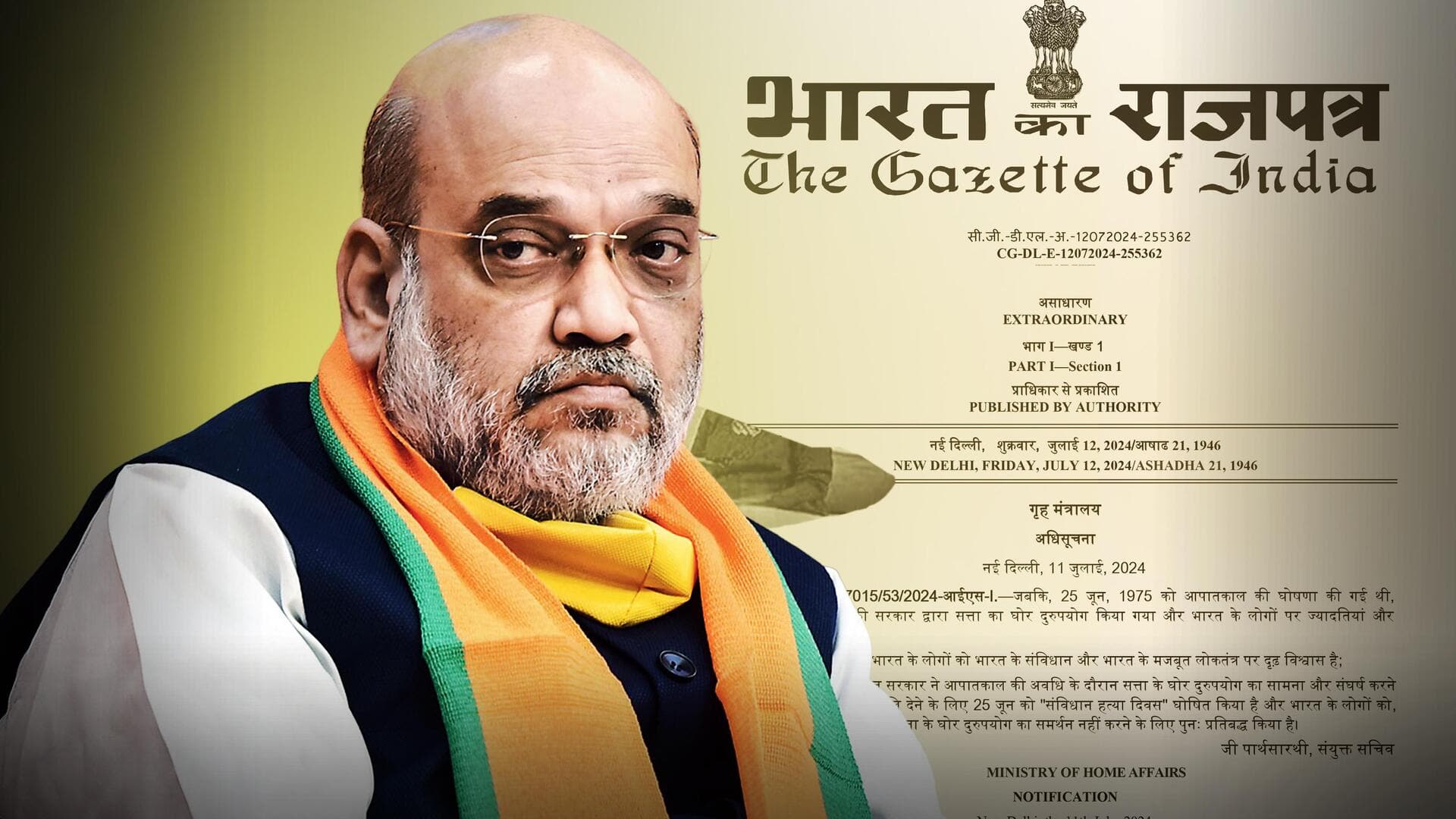
Centre declares Emergency anniversary, June 25, as 'Samvidhaan Hatya Diwas'
What's the story
The Bharatiya Janata Party-led central government has decided to observe June 25, the day the Emergency was declared in 1975, as "Samvidhaan Hatya Diwas," Union Home Minister Amit Shah announced Friday.
"Samvidhaan Hatya Diwas" will commemorate the contributions of those who "endured inhuman pains of 1975 Emergency," Shah added.
In a post on X, he said, "On 25 June 1975, the then Prime Minister Indira Gandhi...strangled the soul of Indian democracy by imposing emergency in the country."
During inaugural session
PM's statement on emergency
The post added that "the Government of India has decided to observe 25 June every year as 'Samvidhan Hatya Diwas', to remind us of the immense contribution of all those people who suffered the inhuman pain of the Emergency of 1975."
To recall, during an address in the Lok Sabha last month, PM Modi referred to the emergency period as a "black spot" in India's democratic history.
Twitter Post
Read: Shah's post here
25 जून 1975 को तत्कालीन प्रधानमंत्री इंदिरा गाँधी ने अपनी तानाशाही मानसिकता को दर्शाते हुए देश में आपातकाल लगाकर भारतीय लोकतंत्र की आत्मा का गला घोंट दिया था। लाखों लोगों को अकारण जेल में डाल दिया गया और मीडिया की आवाज को दबा दिया गया। भारत सरकार ने हर साल 25 जून को 'संविधान… pic.twitter.com/KQ9wpIfUTg
— Amit Shah (@AmitShah) July 12, 2024
In Parliament
Murmu, Birla also highlighted Emergency during Parliament session
Separately, President Droupadi Murmu, in her address to a joint sitting of Parliament last month, also talked about the Emergency period.
She described the Emergency of 1975 as "the biggest and darkest chapter of direct attack on the Constitution."
Shortly thereafter, Lok Sabha Speaker Om Birla read out a resolution condemning the imposition of Emergency on the night of June 25-26, 1975, specifically targeting the Congress and former Prime Minister Indira Gandhi for its severe repercussions.
Background
Explained: What happened during emergency
The Emergency, lasting from June 25, 1975, to March 21, 1977, marked a period when PM Gandhi's government utilized constitutional provisions to enforce extensive executive and legislative measures across India.
Next year, 2025, marks the fiftieth anniversary of its imposition, characterized by suspended civil liberties, restricted press freedom, widespread arrests, cancelled elections, and governance by decree.
Opposition leaders were largely incarcerated, and fundamental rights, including freedom of speech under Article 19(1)(a), were severely restricted, leading to press censorship.